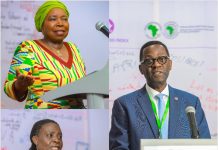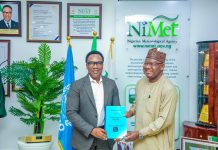The aviation sector now contributes approximately $1.7 billion to Nigeria’s Gross Domestic Product (GDP), according to the Federal Airports Authority of Nigeria (FAAN). The milestone was announced by FAAN’s Managing Director, Olubunmi Kuku, during the launch of the book “100 Years of Civil Aviation in Nigeria” authored by Wole Shadare in Lagos.
Kuku described the achievement as a testament to the power of market-driven reforms and increased private sector participation in the aviation industry. “Nigeria’s aviation landscape has undergone a remarkable transformation. Private companies like Air Peace and Arik Air have not only filled the gap left by Nigeria Airways but have revolutionised the sector,” she said.
She noted that Nigeria currently boasts 39 certified airline operators, 31 airports, and over 2,100 licensed pilots, supported by a broad workforce that includes engineers, air traffic controllers, and service personnel.
In 2023, over 16 million passengers used Nigeria’s domestic terminals, while international traffic surpassed 3.5 million. Kuku stated that international carriers increasingly view Nigeria as a key market in Africa.
Reflecting on Nigeria’s post-independence aviation journey, Kuku recalled how Nigeria Airways emerged to serve national needs but later declined due to mismanagement. She highlighted the pivotal shift in the early 2000s that led to the rise of private operators, bringing new capital, modern management practices, and competitiveness to the industry.
Despite these advances, Kuku acknowledged ongoing challenges—such as infrastructure deficits, regulatory hurdles, and limited access to finance—but called on stakeholders and investors to view them as opportunities.
“The forthcoming chapter of Nigerian aviation will be authored by those who recognise that our skies are not just thoroughfares for aircraft, but highways to prosperity,” she said.
Kuku also praised Wole Shadare’s 25-chapter book for capturing the sector’s history and charting its future, calling it a valuable resource for scholars, professionals, and policymakers.
















